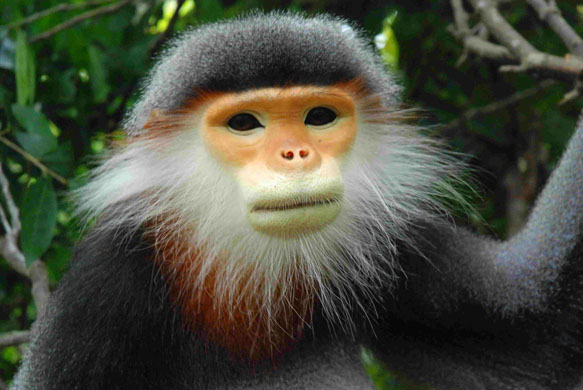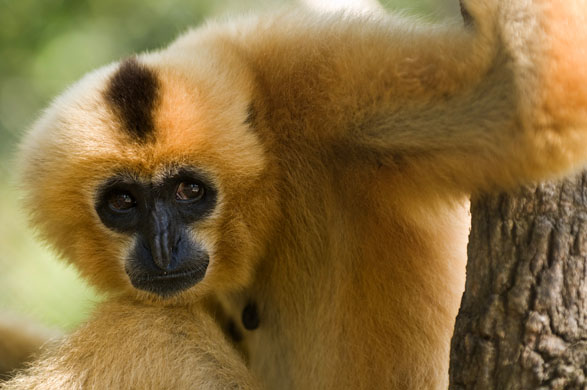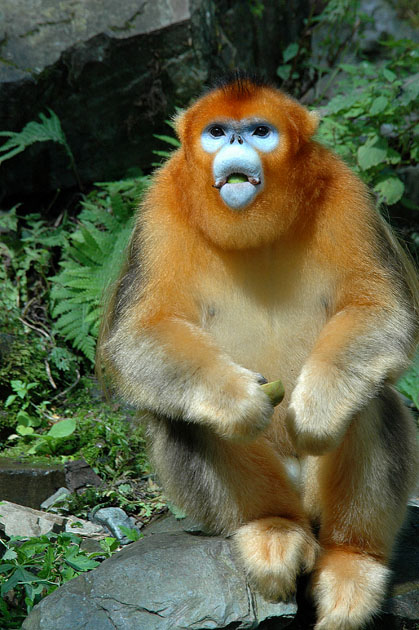Assalamualaikum dan salam sejahtera semua!
Apa khabar warga BIOSIS dan pembaca sekalian?
Minggu ini sangat padat dengan aktiviti dan tugasan.
BIOSIS baru sahaja melaksanakan Majlis Makan Malam Tahunan Jabatan Sains Biologi!
Dengar kata, ada lagi acara daripada BIOSIS. Apa dia?
Nantikan!!!
Kali ini kami akan berkongsi dengan anda mengenai Primates! Tahukah apa itu Primates?
The primates include the most familiar of the placental mammals, because they include us, Homo sapiens. Primates also include familiar animals, such as the chimpanzees, gorillas, and monkeys, as well as the somewhat less familiar lemurs, lorises, galagos, pottos, sifakas, indris, aye-ayes, and tarsiers.
Nearly half of all primates are in danger of becoming extinct, according to a study by the International Union for the Conservation of Nature. Habitat destruction and hunting for food and the illegal wildlife trade are the main threats to the world's 634 primate species – 303 of which are now classed as vulnerable, endangered and critically endangered. Here are some of the species under threat.

The grey-shanked douc langur (Pygathrix cinerea) is found in Vietnam. In Asia, more than 70% of primates are classified on the IUCN 'red list' as vulnerable, endangered or critically endangered; in both Vietnam and Cambodia, approximately 90% of primate species are considered at risk of extinction

The yellow-cheeked crested gibbon (Nomascus gabriellae) was upgraded from vulnerable to endangered. In south-east Asia, populations of gibbons, leaf monkeys and langurs have dropped due to rapid habitat loss and hunting to satisfy the Chinese medicine and pet trade.
Comelkan Primates ini?
Untuk pengetahuan anda, binatang ini semakin berkurang populasi dalam dunia. Justeru, kita sebagai manusia mestilah melindungi haiwan ini daripada ketamakan manusia sendiri.
Mereka juga berhak untuk merasai kehidupan dengan baik.

The Qinling golden snub-nosed monkey (Rhinopithecus roxellana qinlingensis), found in China, has been reclassified from vulnerable to endangered. Habitat destruction, through the burning and clearing of tropical forests, is a major threat to primates. Other threats include the hunting of primates for food and an illegal wildlife trade.
more about primates!
thank you!
have a nice day BIOSIS!
Rabu, Mei 15, 2013
Primates!!
Langgan:
Catat Ulasan (Atom)
Clock
Youtube Channel
Label
- About Us (4)
- Aktiviti (13)
- Kejayaan Ahli Biosis UMT (6)
- kerohanian (3)
- Majlis (15)
- Outing (4)
- Pengetahuan am (9)
- Pertandingan (7)
- Perwakilan Biosis UMT (4)
- Sains (4)
- semasa (13)
 Selamat Datang Ke Blog Biosis UMT. Blog ini telah dilancarkan pada 4 Ogos 2012 bagi menggantikan blog lama Biosis UMT iaitu http://biosisumt.blogspot.com(2011) dan http://welovebiosis.blogspot.com(2012). Setiap info dan perkara yang berkaitan dengan Biosis akan dipaparkan disini.
Selamat Datang Ke Blog Biosis UMT. Blog ini telah dilancarkan pada 4 Ogos 2012 bagi menggantikan blog lama Biosis UMT iaitu http://biosisumt.blogspot.com(2011) dan http://welovebiosis.blogspot.com(2012). Setiap info dan perkara yang berkaitan dengan Biosis akan dipaparkan disini.
 Perwakilan Biosis UMT 2011/12 (1st Generation) telah bersetuju untuk membuat pembaharuan terhadap media massa Biosis. 3 media telah dipilih dan semuanya menggunakan sistem online (jalur lebar) iaitu, Blog Biosis UMT, FB Profile Biosis UMT dan Group FB Biosis UMT.
Perwakilan Biosis UMT 2011/12 (1st Generation) telah bersetuju untuk membuat pembaharuan terhadap media massa Biosis. 3 media telah dipilih dan semuanya menggunakan sistem online (jalur lebar) iaitu, Blog Biosis UMT, FB Profile Biosis UMT dan Group FB Biosis UMT.
 Biosis UMT telah mengadakan kerjasama dengan beberapa badan luar bukan kerajaan bagi melancarkan proses promosi dan penjenamaan Biosis UMT. Cherry Bee Design iaitu anak syarikat Vo'ment Corporation telah bersetuju untuk mengadakan kerjasama bagi tempoh 5 tahun bermula 2011.
Biosis UMT telah mengadakan kerjasama dengan beberapa badan luar bukan kerajaan bagi melancarkan proses promosi dan penjenamaan Biosis UMT. Cherry Bee Design iaitu anak syarikat Vo'ment Corporation telah bersetuju untuk mengadakan kerjasama bagi tempoh 5 tahun bermula 2011.
 28 Mei 2012 yang lalu telah berlangsung 'Annual Grand Meeting Biosis' yang pertama. Pada majlis berkenaan telah berlangsung pembubaran Perwakilan Biosis UMT bagi sesi 2011/2012 (1st Generation) diganti dengan Perwakilan Biosis UMT 2012/2013 (2nd Generation)
28 Mei 2012 yang lalu telah berlangsung 'Annual Grand Meeting Biosis' yang pertama. Pada majlis berkenaan telah berlangsung pembubaran Perwakilan Biosis UMT bagi sesi 2011/2012 (1st Generation) diganti dengan Perwakilan Biosis UMT 2012/2013 (2nd Generation)




.png)
.png)


0 ulasan:
Catat Ulasan